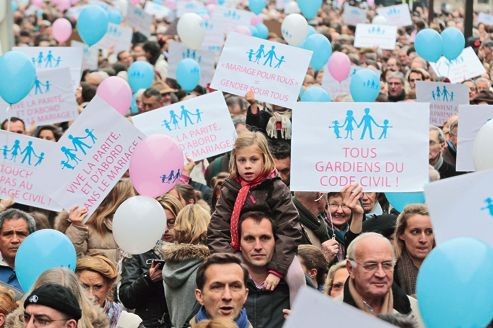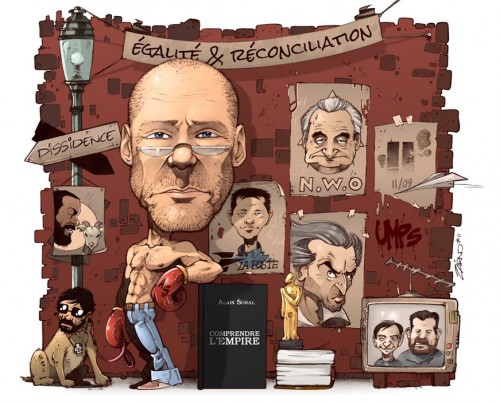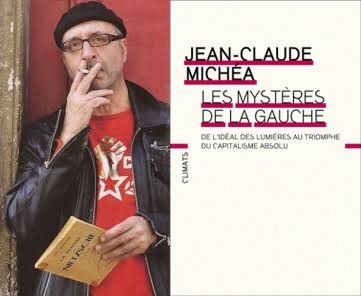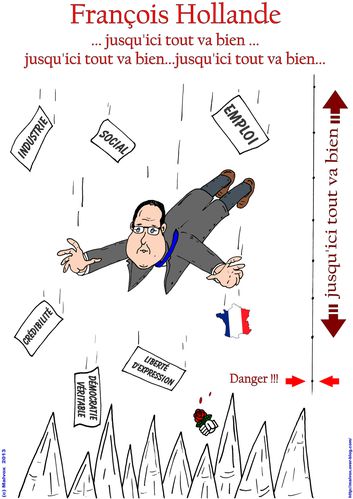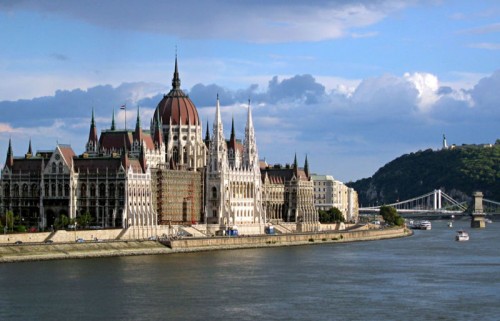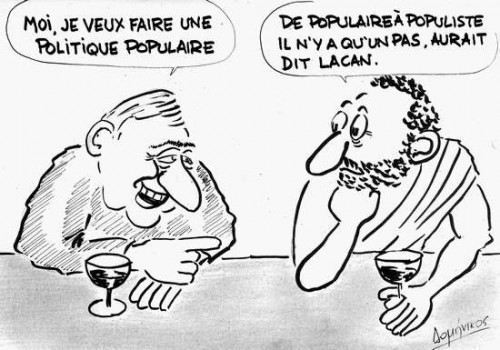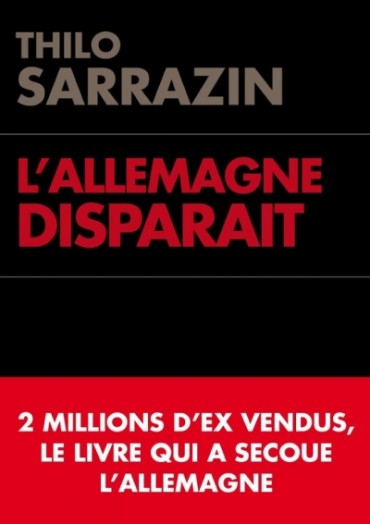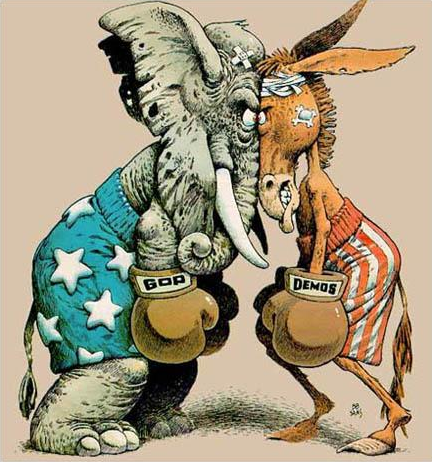“We will march to fight for Holy Russia/
And spill as one our blood for her.”
—White Army song
The “Third Political Theory” (3PT) is what Alexander Dugin, in The Fourth Political Theory [2] (2012), calls Fascism and National Socialism.[1]
(2012), calls Fascism and National Socialism.[1]
According to Dugin, National Socialist Germany and Fascist Italy were not just militarily, but ideologically defeated in the Second European Civil War (1939–45)—victims of “‘homicide’, or perhaps ‘suicide’.” Thereafter, these two national anti-liberal ideologies allegedly “overcome by history” ceased to address the great challenges facing European man. Then, with Communism’s fall in 1989/91, the second major anti-liberal “theory” opposing the Judeo-financial forces of Anglo-American liberalism collapsed. Today’s anti-liberal struggle, Dugin concludes, requires an ideology that has not “been destroyed and disappeared off the face of the earth.”
There is nothing in The Fourth Political Theory likely to please the Correctorate—which is, perhaps, reason for reading it. Nevertheless, Dugin’s effort to develop a compelling new “theory” appropriate to the global anti-system resistance must be judged (I’ll not be the first to say) a “failure”—an interesting failure, admittedly, but one also constituting a possible snare for the anti-system opposition, especially in its misleading treatment of 3PT and its implications for the anti-system resistance.
***
In early 1992, not long after the Soviet collapse, Alain de Benoist, the Paris-based leader of the French “New Right” (who was then just discovering le facteur Russie), was invited by Alexander Dugin to meet in Moscow. Though elements within the Correctorate immediately raised the specter of a “red-brown alliance”[2] (which apparently caused Benoist to keep his distance) and though petty differences continued to divide them, Dugin was eventually accepted as a kindred, anti-liberal spirit, sharing, as he does, the New Right’s Traditionalism (Evola), political theology (Schmitt), Heideggerian ontology, anti-Americanism, and tellurocratic geopolitics (Haushofer). In recent years, their differences seem to have succumbed to all that link their closely related projects.
Dugin has since become a prominent fixture in the NR constellation, sharing the heavens with Benoist. This prominence is entirely deserved, for the gifted Dugin (something of a one-man think tank) is conversant in all the major European languages, erudite in the anti-liberal and esoteric heritage the NR rescued from the postwar Memory Hole, and, above all, an uncompromising, metapolitically-prolific opponent of the United States, “the citadel of world liberalism” and thus the principal source of evil in our time.
The exact nature of Dugin’s project (embracing various elements shared by Europe’s anti-system opposition) has, though, never been entirely clear when viewed from afar. This seems due less to the many bad English translations of his early articles or the numerous conflicting interpretations that can be found of his work—than to a remarkable political itinerary (possible only in the last sovereign white nation on earth) that took him from the political fringes to the heights of power: an itinerary that began with his membership in the ultra-nationalist and anti-Semitic Pamyet Party in the late 1980s, followed by the post-Soviet Communist Party of Gennady Zyuganov, next the National Bolshevik Party and certain other Eurasianist formations, then the Orthodox-monarchist Rodina bloc, and, for the last decade, after achieving national prominence as a “public intellectual,” an occasional adviser to Vladimir Putin and the Russian Duma.
These formations and capacities, each respectable, together raise certain obvious questions about the nature of a political project that spans such a wide spectrum of belief and blends such an eclectic mix of seemingly incompatible ideas (Evolean Traditionalism, NR thought [already a pot-pourri des idées divergentes], Eurasianism, inter alia) into a worldview suitable to the post-Soviet Russian state.
Arktos’ nicely translated and edited publication is such a publishing event precisely because it gives the Anglophone world its first book-length exposure to Dugin’s thought and thus a clearer view of his NR project.
***
Though still difficult to pigeonhole, I’ve become increasingly critical of Dugin over the years, mainly on account of his Eurasianism—which is not a National Bolshevism in the German sense (of allying Russia and Europe and hence overcoming the narcissistic differences dividing the Greco-Slavic East from the Romano-Germanic West), but rather something of a prospective state ideology inclusive of the Jews, Muslims, and Turks occupying Russian lands—more concerned thus with geopolitical than ethno-civilizational (state power rather than Russian) hegemony—and hence something potentially anti-cultural. This threat is underscored by Dugin’s formal allegiance to the ethnopluralist, multiculturalist, and communitarian principles (spin-offs of the Western universalism he formally opposes) that are key components of Benoist’s culturally-relativist “pluriversum.”[3]
Though unintended, these principles shared by Dugin and Benoist cannot but endanger Europeans, for they legitimize Islam’s colonization of their historic lands, just as they risk turning European Russians into a Turkic-Slavic or Asian people, and thus away from the destiny they share with other Europeans (the “Boreans”: the white or Indo-European peoples of the North).
In his talk at Identitär Idé IV, Dugin the ethnopluralist even toyed with the Left-wing fiction that “race” (as a scientific or zoological concept) is a “social construct” (in spite of his Evolean Tradionalism, which acknowledges the significance of “race” in both its physical and spiritual sense).[4] His position here, though it wavers at times, is like Benoist’s in slighting the racial fundament of what Saint-Loup called the patrie charnelle—the genetic and territorial heritage without which Europeans cease to be who they are.[5]
Dugin, of course, is correct in dismissing “race” as a key social determinant. The white man’s impending demise is spiritual, not biological, in origin. (This, incidentally, is why an American White Nationalism that appeals mainly to race is already a failed project.) Spirit is always primary and the materialist or biological basis of human existence is simply a vehicle of the spirit.
But however “insignificant” as a determinant, race is nevertheless indispensable—in the sense that man’s world is impossible without it. For man is a living, blood-infused being: change his blood (race) and you change his spirit. As it is with being and Being, there is no spirit without blood—the blood distinct to man’s “being-t/here” (Dasein). This doesn’t mean that blood explains or determines anything (at least directly), only that the genetic heritage cannot be dispensed with, without dispensing with the very condition (the “thrownness and facticity”) of human being. Not to see that race, stock, and kinship is an inextricable facet of being is not to see the necessarily embodied nature of Dasein. In fact, Dugin’s is not Heidegger’s Dasein, but an “idealism” (like his Traditionalism).
Dugin’s concessions via Benoist to the miscegenating principles of globalist cosmopolitanism, along with his Turko- and Islamophilia, are evident not just in a Eurasianism that mixes white and yellow, Christian and Islamic peoples in a single polity (instead of promoting the cultural homogeneity characteristic of the West European lands of the High Culture), but also in his stance on the former Faye-Benoist debate on ethnonationalism and communitarianism.
Guillaume Faye is no Vestal Virgin[6], admittedly, but on the decisive issues—race, culture, immigration, Islam—he has stood against the system’s ethnocidal forces for the sake of European Europe, while Dugin, again like Benoist (who in 2000 publicly denounced Faye as a “racist,” just as the French state had launched a judicial assault on him for inciting “racial hatred”), has repeatedly sought an accommodation with the anti-white forces (which probably accounts for a certain Third-World/Islamic interest in 4PT).
In The Fourth Political Theory, Dugin depicts Benoist as a fellow toiler in 4PT and explicitly identifies him with his project. This follows Benoist’s similar public affiliation with 4PT in Moscow in 2009.[7] In spite of their lingering differences, this collaboration between the Paris and Moscow New Rights in recent years seems aimed at giving their related brands of NR discourse (rechristened 4PT) a larger, more consequential audience. (But here I speculate, given that I no longer read their publications.)
Cui bono? For the “political soldier” (who, Dugin believes, is obsolete), for the white ethnonationalist, and, I suspect, for the Russian nationalist, Dugin’s affinity with Benoist, along with his anti-racist opposition to Faye, must set off alarms, signaling, as it does, Dugin’s allegiance to the most communitarian and ethnopluralist—i.e., the most politically correct and demographically compromising—of the NR tendencies.
***
The Fourth Political Theory is full of insightful discussions of 1PT (liberalism) and 2PT (Communism), which is another reason for reading it, but, strangely, there is almost no discussion, except in passim, of 3PT (Fascism/National Socialism)—perhaps because this “theory” was itself a negation of theory—and thus a negation, among other things, of the “modernism” Dugin rather simplistically attributes to it.
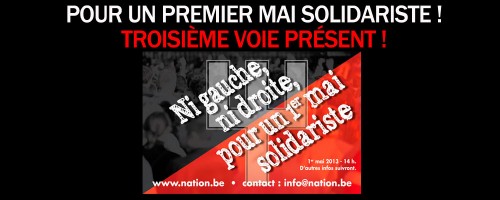
Just as questionably, he treats National Socialism and Fascism, though obviously different, as closely related tendencies, while at the same time ignoring their common roots in an earlier history of anti-liberal resistance. He similarly neglects the post-1945 extensions of this supposedly moribund “theory,” refusing to accept that 3PT did not die after the war and, more important, that the historical forces which once made it a power in the world (the destruction of meaning and the social-economic dislocations that come with excessive liberalization: think today’s “globalization”) are presently creating conditions conducive to another mass, “fascist”-style, anti-liberal insurgence.[8]
For Dugin, 3PT—let’s call it “fascism” (lower case)—is understood in a way not unlike that of the Communist International following its Popular Front turn (1934). In endeavoring then to rally the democratic plutocracies to a collective-security alliance with the Soviet Union against insurgent Germany, the Comintern used “fascism” as a generic term to describe a multitude of movements, allegedly in cahoots with the most reactionary and militaristic factions of Big Capital, but having little else in common other than their anti-liberal or anti-Communist defense of the nation or the nation’s tradition.
Not just Italian Fascists and German National Socialists, but the KKK and Republicans in the US, Franquistas and Falangists in Spain, the “leagues” and others in France, Catholic Rexists in Belgium, Orthodox Iron Guardists in Romania, and virtually every tendency of the interwar period opposing the nihilistic devastations of “democratic capitalism,” Soviet Communism, or Jewish chicanery ended up tagged as “fascist.” Conceptually, this “fascism” was so vacuously defined that “cognitive control over entry criteria into the class was all-but-lost,” as the term evolved into a form of liberal or Left-wing exclusion—like the term “racism.”
After 1945, both the Left and the Academy continued to follow the Comintern line, using the term “fascism” to describe everything or everyone who might oppose 1PT or 2PT in the name of some tradition or rooted identity (what Dugin calls “Dasein”). There’s nothing “scientific” (i.e., rigorous) here, for the term is expressly used to demonize whomever or whatever opposes the forces of capitalist or Communist subversion—usually because the arguments and claims justifying their practices cannot withstand rational scrutiny, even in their own courts. That Dugin uses the term in the same way suggests something about his own assessment of European anti-liberalism.
***
The second major problem with Dugin’s treatment of 3PT (specifically Fascism and National Socialism) is that he fails to acknowledge that these “ideologies” originated not ex nihilo in the 1920s and ’30s, but from a half-century long movement that had emerged in opposition to similar modernizing forces propelled by Jewish and speculative interests profiting from liberalism’s ongoing economization of European life. Not seeing or stressing the social-historical crucible out of which 3PT emerged causes him to miss the larger counter-modernist intent of its “Third Way.”
3PT struggles against liberal modernity, already beyond Left and Right, first stepped onto the historical stage in the late 19th century, as elements from the revolutionary anti-liberal wing of the labor movement joined elements from the revolutionary anti-liberal wing of the nationalist movement to resist liberalism’s Hebraic (i.e., usurious) model of state and society—a model which turns the nation into a market, caters to cosmopolitans, and denies it a history and destiny.[10]
In this sense, German National Socialism and Italian Fascism represented continuations of these earlier socialist and nationalist expressions of anti-liberalism, being sui generis mainly in embodying the specific spirit and tenure of their age.
Like our court historians, Dugin cannot define “fascism,” except vacuously. Indeed, it can only be defined vacuously given that “fascism” was an ideological deception, for there was only one Fascism and numerous distinct and particularistic forms of 3PT: anti-liberalism, anti-capitalism, anti-Communism, anti-modernization, anti-Semitism, ultranationalism, etc.—sometimes overlapping with one another, sometimes not—but, in most cases, defending their collective Dasein in terms of a specific land and people.
In a similar stroke, Dugin ignores the historical circumstances that brought Italian Fascism and German National Socialism to power: the profound material and psychological dislocations of the 1914–18 war and the devastating economic crisis that followed in the ’30s. If more attention were paid to this aspect of his subject, he might have noticed that since the crisis of 2008, economic stagnation, predatory confiscations by the Robber Barons, and the hollowing out of European institutions, preeminently the state, have created conditions in which another mass form of 3PT may arise to challenge the ethnocidal forces in command of state and society.
If this should occur, the Third Political Theory (the “anti-liberal” and hence anti-system “ideology”), which arose in rebellion against liberal modernity and corporate capitalism in the 1890s, and was called “fascism” in the 1920s and ’30s, is likely to assume what earlier were the unforeseeable forms of identitarianism, goldendawnism, casapoundism, and whatever other revolutionary nationalist tendency that presently fights the liberal devastation of European life in the name not necessarily of “race,” “state,” or theory (as Dugin has it), but in that of the traditions defining Europeans as a people (i.e., as Dasein and Mitsein—concepts, via Martin Heidgegger, native to 3PT).[10]
Not coincidentally, the tendencies that today represent 3PT are as distinct and different as the “fascisms” of the interwar period, though each belongs to the same epochal rebellion against liberal modernization that was defeated in 1945 and is only now, and still hesitantly, beginning to reassert something of its former oppositional significance.
Anti-liberals are nevertheless indebted to Dugin for giving them the term “3PT”—because they can now refrain (when being forthright) from describing or thinking of themselves as “fascists” (who, to repeat, were part of something born of an earlier European struggle against the rising forces of Jewish modernity)[11] and therefore ought, more accurately, to be seen as expressions of this larger historical movement (3PT), which has had many different manifestations, most of which converged in resisting the ethnocidal forces associated with capitalism, Communism, or the Jews. Beyond that, there was little ideological similarity (“theory”).
However 3PT is characterized—as “fascist” or as a larger anti-liberal movement—it continues to speak to the present world situation, for unlike the timid imputations of 4PT and the apoliteia lingering in its antecedents, it has an indisputable record of fighting the dark legions of the Antichrist—not for the sake of a theory, but for certain primordial identities rooted in blood and spirit, kin and countrymen. Indeed, if Europeans are to survive the 21st century, it seems likely that they will have to fight for something of greater “mythic” significance than the self-effacing, bloodless, theoretical tenets of 4PT.
As it was with Fascism and National Socialism in their time, 3PT in our time is also likely to reject the established political arenas and manifest itself “extra-institutionally”—against the Troika (IMF-ECB-EC) and its Masonic Parliaments, Money Changers, and Judeo-Americanists—as it resists liberalism’s nation-destroying effects and, more generally, the usurious system the US imposed on defeated Europe in 1945.
In the new political arenas it will create (analogous to 2PT’s Soviets), 3PT’s appeal will not be to a party, a theory, or a metaphysical abstraction (Dasein), but to the “sovereign people” (diminished as his term may be in the “society of the spectacle”)—as it (3PT) rallies the opposition against an unreformable system threatening Europeans with extinction.
And like its earlier manifestations, today’s 3PT struggle will create a counter-hegemony anticipating a future in which Europeans are again free to pursue the destiny born of their Gothic “kings and emperors.” It will not promote an “affirmative action” program for international relations or seek to ensure the communitarian integrity of the alien populations occupying their lands.
***
The third and most significant problem in Dugin’s treatment of 3PT lies in ignoring its postwar extensions and thus in failing to recognize those aspects of postwar “fascist” thought relevant to the current situation, especially now that it has shed its earlier petty-state nationalism, bourgeois (“vertical”) racism, and anti-Slavism.
Dugin and Benoist are both extraordinarily creative forces, from whom much can be learned, but ideologically the project of these “free-floating intellectuals” are closer in spirit to Britain’s “Traditionalist” Prince Charles than to such postwar 3PT figures as the American Vabanquespieler, Francis Parker Yockey, whose so-called “postwar fascism” took the theory and practice of 3PT to a point not yet attained by 4PT or NR thought.
Yockey would know nothing of Dugin’s postmodernity, but by the early 1950s, based on European aesthetic (i.e., Spenglerian) rather than scientific objective criteria and thus with a sort of postmodernism avant la lettre, he had worked out a prescient understanding of what lay ahead, offering both an analysis and a means of fighting whatever postmodern form Satan’s Synagogue might assume.[12] It’s hardly coincidentally that the postwar anti-liberal resistance starts—and culminates—with him.
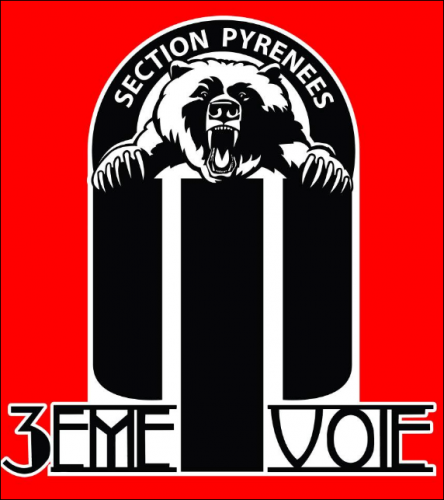 A revolutionary imperial struggle against the Atlanticist Leviathan (aka the NWO)—the struggle to which Yockey gave his life—revolves around the formation of a Euro-Russian federation to fight the thalassocratic powers: les Anglos-Saxons incarnating the Protestant ethic and the spirit of capitalism—England and America—whose hedonist dictatorship of “creative destruction” was not the invention of maniacal Jews, but entirely homegrown, given that it was born at Runnymede; came of age with Henry VIII’s sacrileges, which turned Christianity into a religion of capitalism (Protestantism); and triumphed with the Whig Oligarchy that has dominated the Western world since 1789, when its Continental ideologues overthrew the French monarchy, representing a “Catholic” and regalian modernity.[13]
A revolutionary imperial struggle against the Atlanticist Leviathan (aka the NWO)—the struggle to which Yockey gave his life—revolves around the formation of a Euro-Russian federation to fight the thalassocratic powers: les Anglos-Saxons incarnating the Protestant ethic and the spirit of capitalism—England and America—whose hedonist dictatorship of “creative destruction” was not the invention of maniacal Jews, but entirely homegrown, given that it was born at Runnymede; came of age with Henry VIII’s sacrileges, which turned Christianity into a religion of capitalism (Protestantism); and triumphed with the Whig Oligarchy that has dominated the Western world since 1789, when its Continental ideologues overthrew the French monarchy, representing a “Catholic” and regalian modernity.[13]
By 1952, Yockey understood that both the liberation and destiny of Europe were henceforth linked to Russia—the sole world power capable of resisting the satanic counter-civilization geopolitically aligned along the Washington-London-Tel Aviv axis.[14]
Resisting the Leviathan, the movement stretching from Yockey, Saint-Loup, René Binet, and others in the 1940s and 50s, to Jean Mabire, François Duprat, and Jean Thiriart in the ’60s and early ’70s, and to the current generation of revolutionary nationalist, identitarian, and other “Third Way” or anti-system tendencies awakened by the golden dawn[15]—attests (I would think) to the continuing vitality of this allegedly moribund “theory,” especially compared to the deedless metapolitics of NR or 4PT discourse.
In contrast to 4PT, there beats at the heart of 3PT the spirit not of theory but of practice. The great 3PT tribunes all followed Pisacane in their conviction that “ideas spring from deeds and not the other way around.” What always is (and has been) most lacking is not ideas, but men to realize them. There are, as such, no metapolitics without politics.
Privileging Evola’s royal way to Guénon’s sacerdotal, the 3PT resistance distinguishes itself today by fighting for socialism against the Left, for nationalism against the Right, and for Europe’s “difference” against the multi-racialist ideologues of 4PT.
***
After 1945, 3PT’s POWs were exiled to the margins of European society. It is from there, accordingly, that the final assault on the liberal center is being prepared. For the propagandists of the deed—intent on ridding Europe of her usurers and alien interlopers, and thus of resuming her destiny—Dugin’s theory is a detour from the Euro-Russian Imperium offering the one possibility of creating not the utopia of 4PT multipolarity or replicating the vileness of US unipolarity, but of establishing a peaceful world order based on Borean principles.
Notes
1. Alexander Dugin, The Fourth Political Theory, trans. M. Sleboda and M. Millerman (London: Arktos, 2012).
2. Thierry Wolton, Rouge-Brun: Le mal du siècle (Paris: Lattès, 1999).
3. Michael O’Meara, “Benoist’s Pluriversum: An Ethnonationalist Critique,” The Occidental Quarterly 5: 3 (Fall 2005); http://toqonline.com/archives/v5n3/53-mo-pluriversum.pdf [3]. Also Michael O’Meara,”Community of Destiny or Community of Tribes?,” Ab Aeterno n. 2 (March 2010); http://www.counter-currents.com/2010/08/community-of-destiny-or-community-of-tribes/ [4].
4. Dugin’s Identitär Idé IV talk is at http://www.youtube.com/watch?v=7X-o_ndhSVA [5]. On race and Traditionalism, see Julius Evola, Éléments pour une éducation raciale, trans. G. Boulanger (Puiseaux: Pardès, 1984 [1941]); also Frithjof Schuon, Castes and Races, trans. M. Pallis and M. Matheson (Bedfont, UK: 1982 [1959]).
5. Saint-Loup, “Une Europe des patries charnelles,” Défense de l’Occident, n. 136 (March 1976).
6. Michael O’Meara, Guillaume Faye and the Battle of Europe (London: Arktos, 2013).
7. http://www.evrazia.tv/content/alien-die-bienua-o-chietviertoi-politichieskoi-tieorii [6].
8. George Friedman, “Europe, Unemployment and Instability” (March 5, 2013), http://www.stratfor.com/weekly/europe-unemployment-and-instability [7].
9. Karlheinz Weissmann, Der Nationale Sozialismus: Ideologie und Bewegung 1890–1933 (Munich: Herbig, 1998); Zeev Sternhell, La Droite révolutionnaire 1885–1914: Les origines françaises de fascisme (Paris: Seuil, 1978); Arnaud Imatz, Par-delà droite et gauche: Histoire de la grande peur récurrente des bien-pensants (Paris: Godefroy de Bouillon, 2002).
10. Pace Dugin, Martin Heidegger remained a proponent of 3PT, evident in his National Socialist critique of Hitler’s regime; see his “second magnum opus,” Contributions to Philosophy (From Enowning), trans. P. Emad and K. Maly (Bloomington: Indiana University Press, 1999 [1936-38/1989]).
11. On the essentially “Jewish” character of “modernity,” see Yuri Slezkine, The Jewish Century (Princeton: Princeton University Press, 2004).
12. Francis Parker Yockey, The Proclamation of London (Shamley Green, UK: The Palingenesis Project, 2012 [1949]); Francis Parker Yockey, “The Prague Treason Trial: What Is Behind the Hanging of Eleven Jews in Prague” (1952), http://www.counter-currents.com/tag/the-prague-treason-trial/ [8].
13. E. Michael Jones, The Jewish Revolutionary Spirit and Its Impact on World History (South Bend, Ind.: Fidelity Press, 2008); Steve Pincus, 1688: The First Modern Revolution (New Haven & London: Yale University Press, 2009).
14. Desmond Fennell, Uncertain Dawn: Hiroshima and the Beginning of Post-Western Civilisation (Dublin: Sanas, 1996).
15. Nicolas Lebourg, Le Monde vu de la plus extrême droite: Du fascisme au nationalisme-révolutionnaire (Perpignan: Presses Universitaires de Perpignan, 2010).



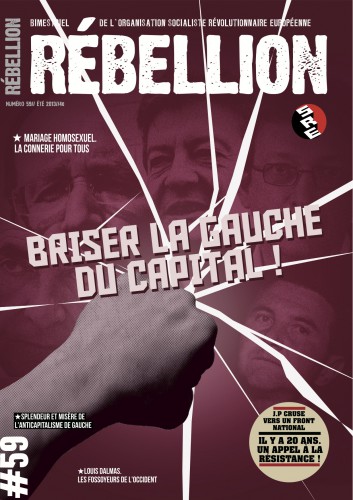
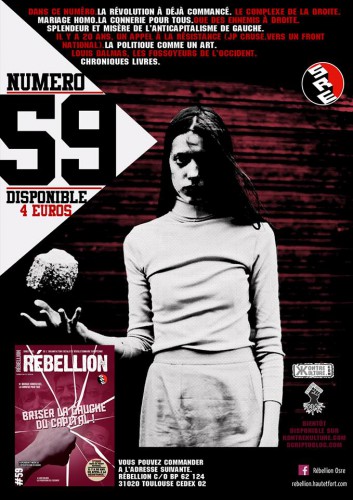

 del.icio.us
del.icio.us
 Digg
Digg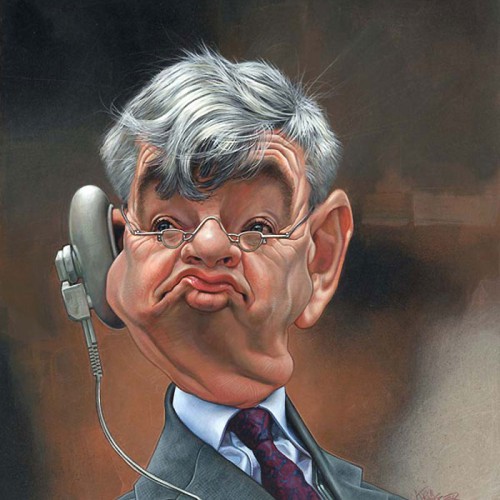
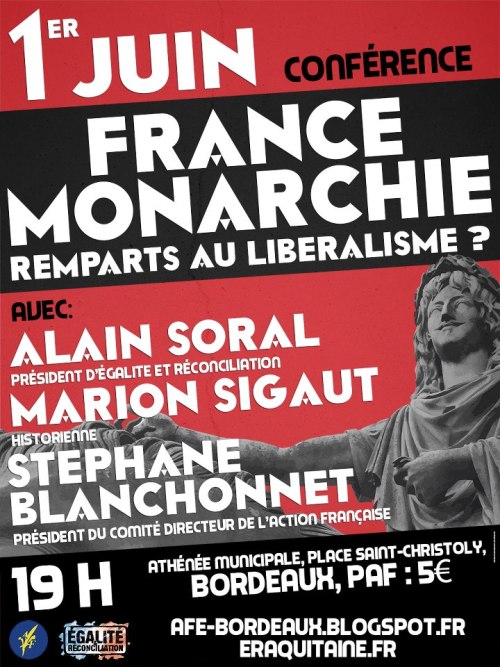
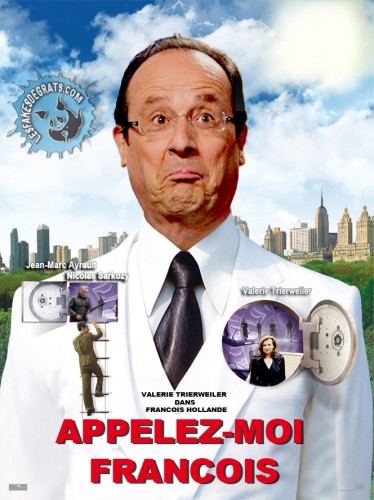







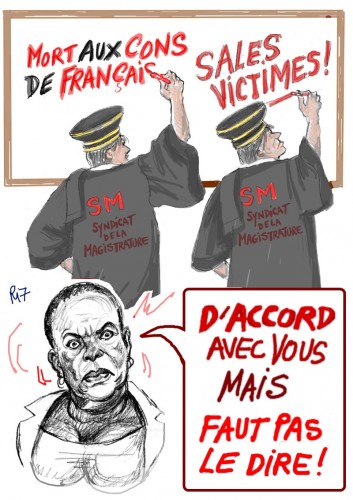
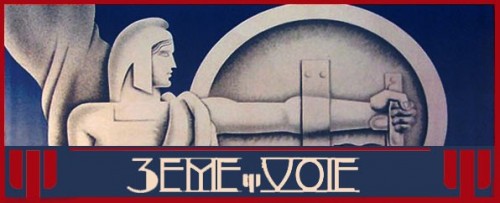

 A revolutionary imperial struggle against the Atlanticist Leviathan (aka the NWO)—the struggle to which Yockey gave his life—revolves around the formation of a Euro-Russian federation to fight the thalassocratic powers: les Anglos-Saxons incarnating the Protestant ethic and the spirit of capitalism—England and America—whose hedonist dictatorship of “creative destruction” was not the invention of maniacal Jews, but entirely homegrown, given that it was born at Runnymede; came of age with Henry VIII’s sacrileges, which turned Christianity into a religion of capitalism (Protestantism); and triumphed with the Whig Oligarchy that has dominated the Western world since 1789, when its Continental ideologues overthrew the French monarchy, representing a “Catholic” and regalian modernity.[13]
A revolutionary imperial struggle against the Atlanticist Leviathan (aka the NWO)—the struggle to which Yockey gave his life—revolves around the formation of a Euro-Russian federation to fight the thalassocratic powers: les Anglos-Saxons incarnating the Protestant ethic and the spirit of capitalism—England and America—whose hedonist dictatorship of “creative destruction” was not the invention of maniacal Jews, but entirely homegrown, given that it was born at Runnymede; came of age with Henry VIII’s sacrileges, which turned Christianity into a religion of capitalism (Protestantism); and triumphed with the Whig Oligarchy that has dominated the Western world since 1789, when its Continental ideologues overthrew the French monarchy, representing a “Catholic” and regalian modernity.[13]
 Het gaat de Zuid-Europese landen niet voor de wind. Italië kreunt onder een politieke crisis wat uiteraard niet bevorderlijk is voor het treffen van maatregelen om iets te doen aan de barslechte economische situatie waarin dat land verkeert. Spanje is er nog erger aan toe , de conservatieve regering heeft er te kampen met een aantal financiële schandalen waarbij een aantal van haar ministers betrokken zijn en als kers op de taart kwam het nieuws dat een ‘infante’ (de titel van een dochter van de Spaanse koning) van medeplichtigheid aan een ernstige fraude wordt verdacht. Aan de situatie in Griekenland hoeven we zelfs geen woorden meer te verspillen maar misschien wel aan die in Frankrijk. Een land dat weliswaar noordelijker ligt maar blijkbaar toch nog zuidelijk genoeg om ernstig aangetast te zijn door de epidemie die rond de Middellandse Zee heerst.
Het gaat de Zuid-Europese landen niet voor de wind. Italië kreunt onder een politieke crisis wat uiteraard niet bevorderlijk is voor het treffen van maatregelen om iets te doen aan de barslechte economische situatie waarin dat land verkeert. Spanje is er nog erger aan toe , de conservatieve regering heeft er te kampen met een aantal financiële schandalen waarbij een aantal van haar ministers betrokken zijn en als kers op de taart kwam het nieuws dat een ‘infante’ (de titel van een dochter van de Spaanse koning) van medeplichtigheid aan een ernstige fraude wordt verdacht. Aan de situatie in Griekenland hoeven we zelfs geen woorden meer te verspillen maar misschien wel aan die in Frankrijk. Een land dat weliswaar noordelijker ligt maar blijkbaar toch nog zuidelijk genoeg om ernstig aangetast te zijn door de epidemie die rond de Middellandse Zee heerst.
